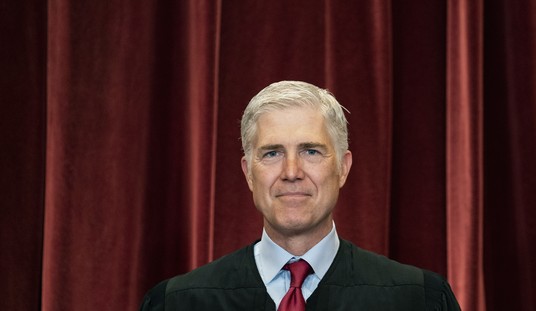Republicans are getting advice from everyone on how to become more competitive. Perhaps they should listen to some of their rising stars who are looking to reform the party beyond tweaking the message or proposing specific policy changes.
Washington Times:
The Republican party’s young leaders on Sunday continued to distance themselves from defeated presidential candidate Mitt Romney and ramped up the effort to paint the GOP in a new light.
Speaking on “Fox News Sunday,” Louisiana Gov. Bobby Jindal, chair of the Republican Governors Association, again repudiated Mr. Romney’s recent comments that he was unsuccessful in the Nov. 6 election because of “gifts” from the Obama administration to certain blocs of voters.
“I absolutely reject what he said. … You don’t start [to reach out to to voters] by insulting people, saying their votes were bought,” Mr. Jindal said.
Mr. Jindal appeared on the program with another popular rising star in the party, Wisconsin Gov. Scott Walker, vice chairman of the RGA. The duo is helping to lead the effort to rebrand the GOP, which continues to lose ground among minority, young and female voters. Each of those groups went for President Obama in the election by wide margins.
While not explicitly saying so, Mr. Jindal implied that Mr. Romney reinforced the perception that the Republican party is the voice of corporate CEOs and of the wealthy, and did not seem surprised that most minority voters and women chose to cast ballots for the president.
“We have to make it very clear: We’re not the party of big, of big business, big banks, big Wall Street, big bailouts. … We’re not the party trying to protect the rich. They can protect themselves. We’re the party that wants growth,” he said.
Any reform must start by understanding the problems. Jindal and Walker are making a lot of sense in their post-election critiques:
“We need to figure out what we did right and what we did wrong, how we can improve our tone, our message, our technology, our turnout — all the things that are required to win elections,” McDonnell said. “We are disappointed, but we are not discouraged.”
With polls in hand and shifting demographic trends in mind, these Republicans are looking at how best to position the party to make inroads with growing numbers of Hispanic, black and young voters who overwhelmingly voted Democratic last week. The Republicans were still smarting over constant criticism of Romney from Obama and Vice President Joe Biden — and what they saw as Romney’s often ineffective response.
“They spent all their time making Mitt Romney unacceptable and making him out to be someone who was untrustworthy and unacceptable to enough of the American people — and it worked,” Iowa Gov. Terry Branstad said in an interview.
In the hallways at the conference, the governors and their top advisers uniformly blamed Romney’s loss on an uneven communications strategy. They said Romney allowed himself to be branded a corporate raider who put the interests of the wealthy above those of middle-income voters.
“We didn’t have effective means by which to counter the attacks the Obama-Biden campaign took against Mitt Romney and his team,” Walker said. “I just don’t think you can let that go unanswered.”
Time and again, the governors pointed to Obama attacks that settled into voters’ minds.
[…]
Jindal, however, attributed Romney’s loss to a lack of “a specific vision that connected with the American people.”
“His campaign was largely about his biography and his experience,” Jindal said. “But time and time again, biography and experience is not enough to win an election. You have to have a vision, you have to connect your policies to the aspirations of the American people. I don’t think the campaign did that and as a result, this became a contest between personalities and — you know what? — Chicago won that.”
There is currently a generational divide in the Republican party, with younger members seeing the opportunity in Romney’s loss as a means to reform the party’s messaging apparatus to include more sophisticated social media outreach, while dealing with policy specifics that would distance the party from the establishment’s reliance on “Country Club Republicans” and what they perceive as a less than ideologically coherent program that promotes “compassionate conservatism” instead of the genuine article.
Pro-free market, pro-growth, and pro-family policies offered from a strong conservative viewpoint is the key say many of these younger party members.
Romney’s “pro-growth” message was doomed by a lack of specifics, allowing Obama to paint his ideas as warmed over George Bush policies. Whether new blood is necessary to revitalize that message or whether a youth movement in the GOP will make the party competitive again remains to be seen.









Join the conversation as a VIP Member